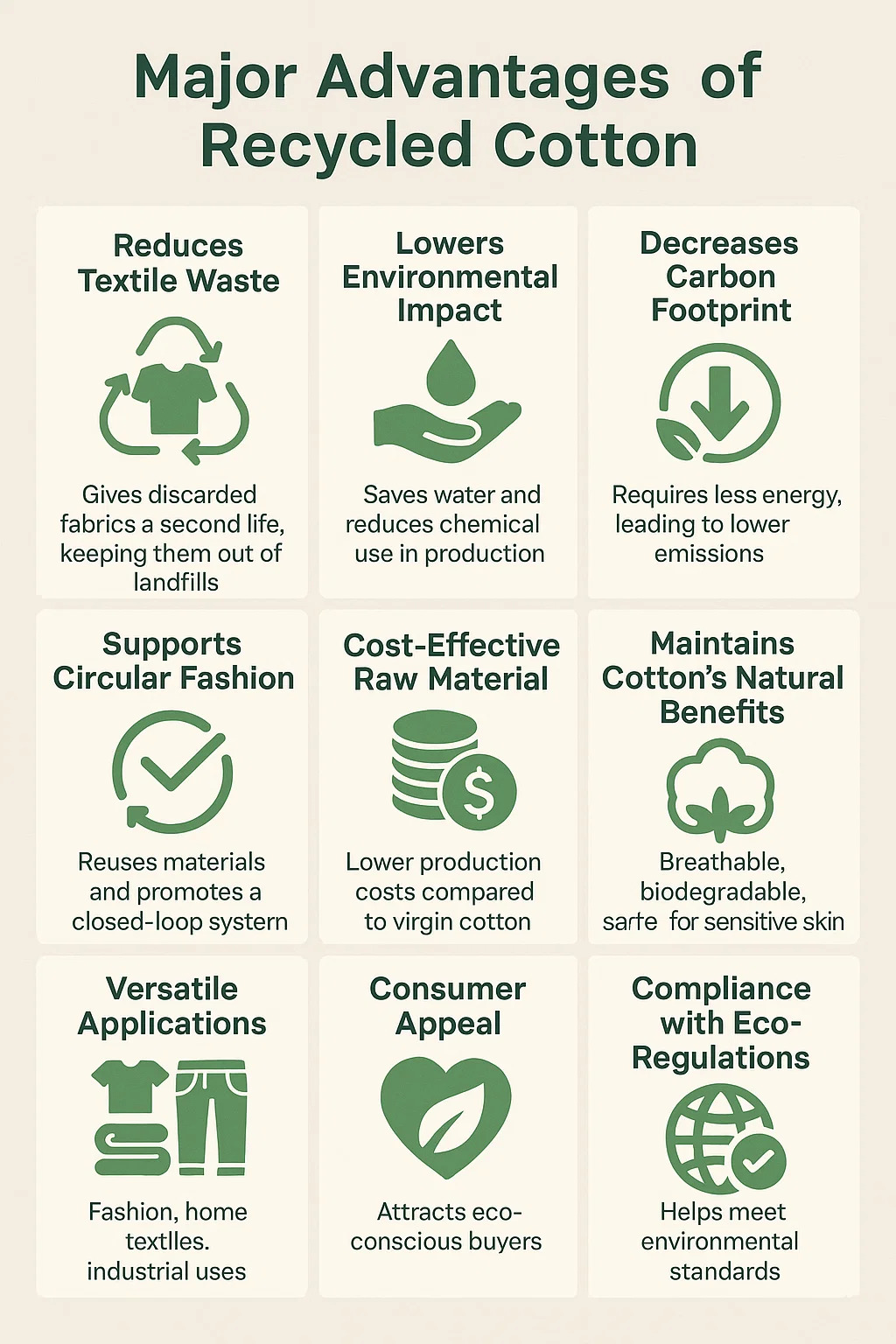Search by posts
Calendar
Industry News
 By Admin
By Admin
What are the major advantages of recycled cotton?
Major Advantages of Recycled Cotton
1. Reduces Textile Waste
Recycled cotton gives discarded fabrics (old clothes, factory scraps, damaged textiles) a second life, keeping them out of landfills and incinerators. This helps combat the global textile waste crisis.
2. Lowers Environmental Impact
Saves Water: Unlike conventional cotton farming (which is extremely water-intensive), recycling cotton skips the agricultural stage, drastically reducing water consumption.
Reduces Chemical Use: No need for pesticides, fertilizers, or bleaching agents used in virgin cotton production.
3. Decreases Carbon Footprint
Producing recycled cotton requires less energy than growing and processing new cotton, leading to lower greenhouse gas emissions.
4. Supports Circular Fashion
By reusing existing materials, recycled cotton promotes a closed-loop system, reducing dependency on raw resources and encouraging sustainable manufacturing.
5. Cost-Effective Raw Material
Since it relies on waste textiles, recycled cotton can be a cheaper alternative to virgin cotton, helping brands cut production costs while staying eco-friendly.
6. Maintains Cotton's Natural Benefits
Breathable & Biodegradable: Like virgin cotton, it remains soft, moisture-wicking, and naturally decomposable.
Safe for Sensitive Skin: Free from harsh chemicals if processed cleanly.
7. Versatile Applications
Can be used in:
Fashion (blended into T-shirts, denim, hoodies)
Home Textiles (towels, bedding, upholstery stuffing)
Industrial Uses (cleaning cloths, insulation, packaging)
8. Consumer Appeal
Eco-conscious buyers increasingly prefer products made from recycled materials, giving brands a competitive edge in sustainability-focused markets.
9. Compliance with Eco-Regulations
Helps companies meet environmental standards (like GRS certification) and comply with tightening waste reduction laws in many countries.


